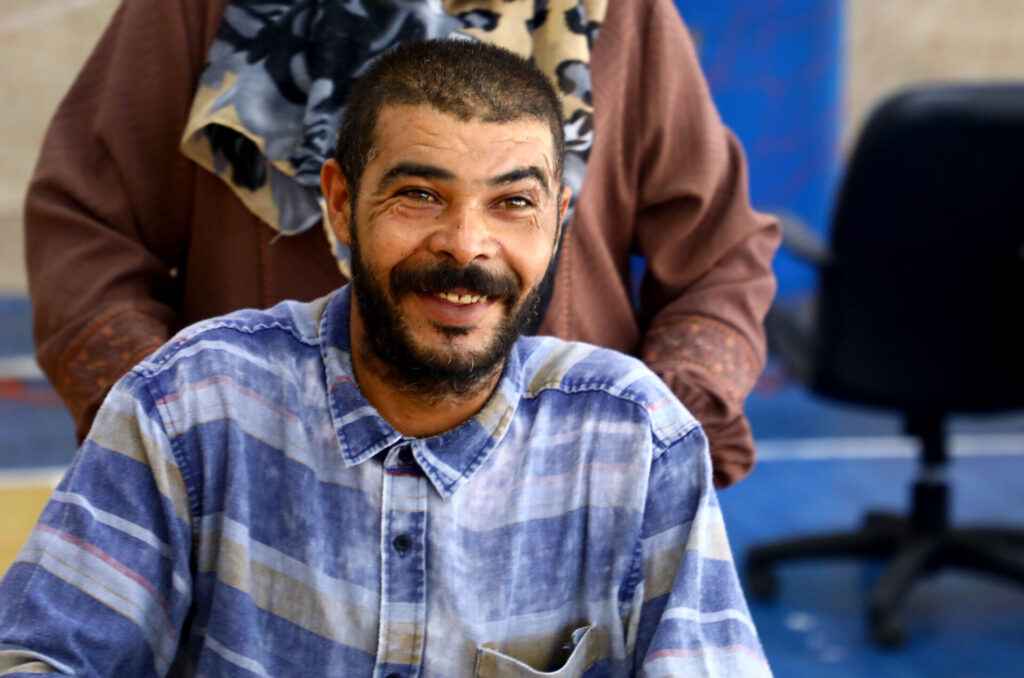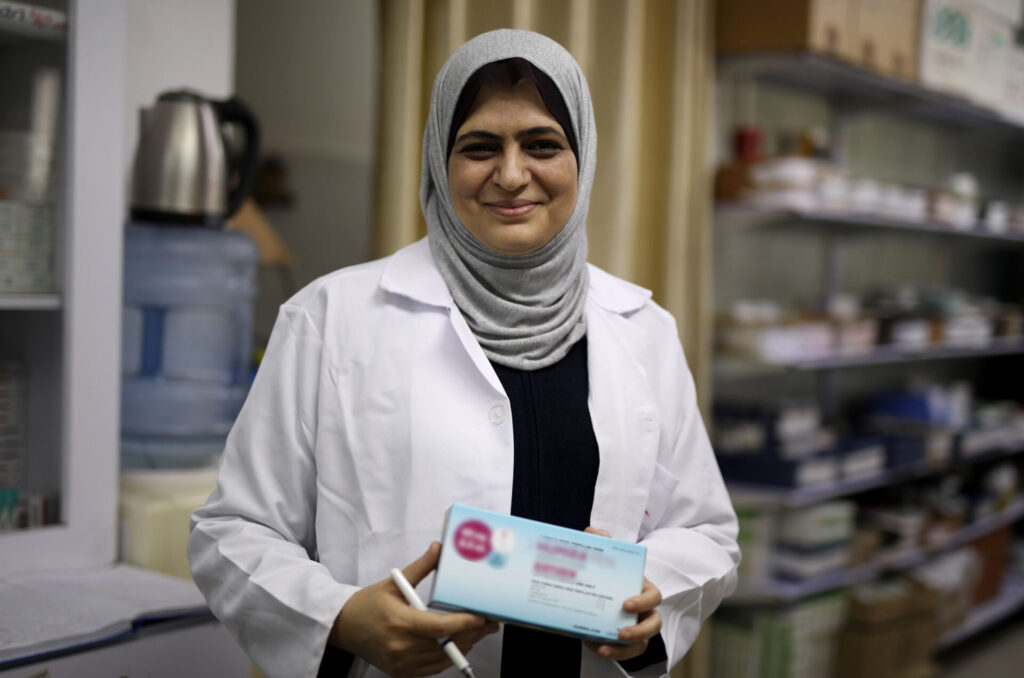Sep, 2010
“When I came to Anera, my daughter, Aya’s situation was very bad."
"She had acute diarrhea. I cooked vegetable soup for her, but it was in vain,” said Fatima Al-Ila, who lives in the southern tip of Rafah, close to the Egyptian border in Gaza. Aya, just over a year old, suffers from an inherited disorder called glucose-galactose malabsorption (GGM), which prevents her from absorbing the simple sugars found in breast milk and in generic milk substitutes.
Aya has suffered from developmental setbacks because of an irregular supply of Galactomin-19, a special milk substitute for children with GGM. “Although she has teeth, she still can’t stand, sit alone or walk,” explains Fatima.
The National Institute of Health says only several hundred people have been diagnosed with GGM worldwide. This condition increases the acidity of the blood and tissues and causes severe diarrhea, which puts the baby in danger of dying from dehydration. Children like Aya are entirely dependent on Galactomin-19 but it is expensive (roughly $US 100 a can) and unavailable locally. Aya needs two to three cans a week of the milk substitute in order to thrive.
When the milk isn’t available, Aya spends her days at the hospital connected to an IV solution. Four of Fatima’s seven children have GGM. Her second daughter spent two months in the hospital before she died from the condition, because doctors couldn’t diagnose what was wrong with her. She has two other children who have survived the disease and are no longer dependent upon the milk substitute: Mohammad, who is now ten years old, and Aysha who is five. Fatima still hopes her youngest child Aya, will survive too.
Aysha received Galactomin-19 milk formula from Anera until she was three and could start eating meat, vegetables and fruits. She will never be able to eat bread or refined sugars.
There are six known cases of GGM in Gaza and another six children are suspected of having it. Anera recently provided an emergency supply of Galactomin-19 to these Gaza children, who are entirely dependent upon this expensive milk substitute to survive. Anera has also been seeking funding to enable a continuous supply of the milk substitute.


